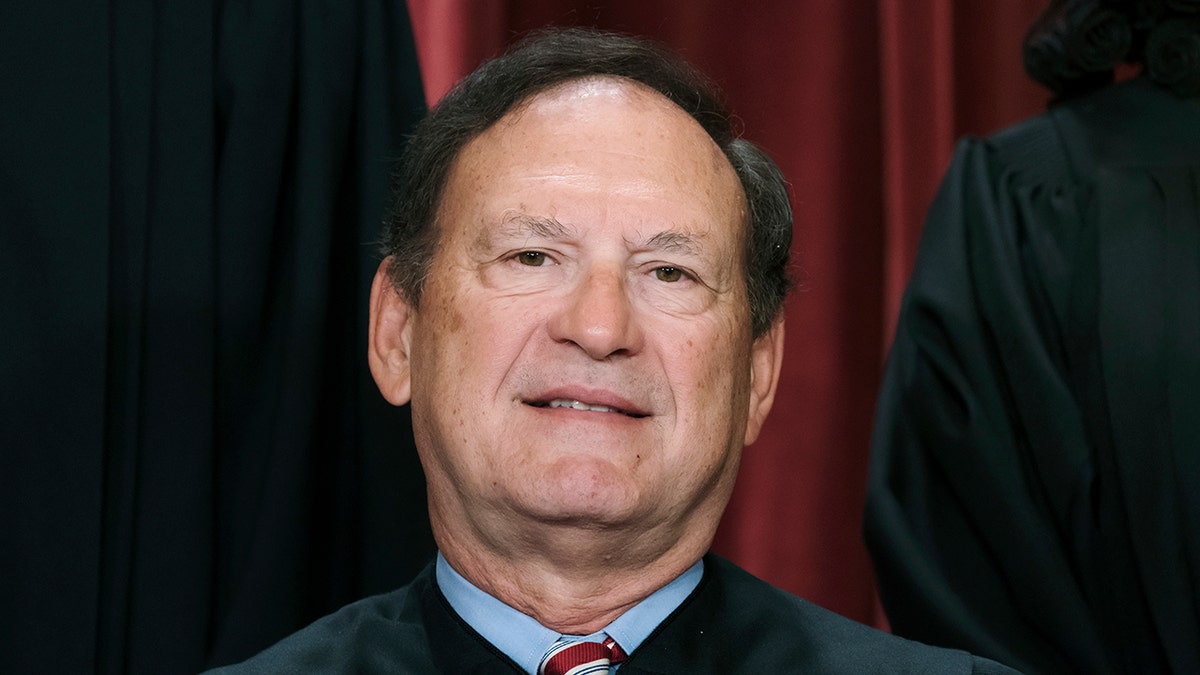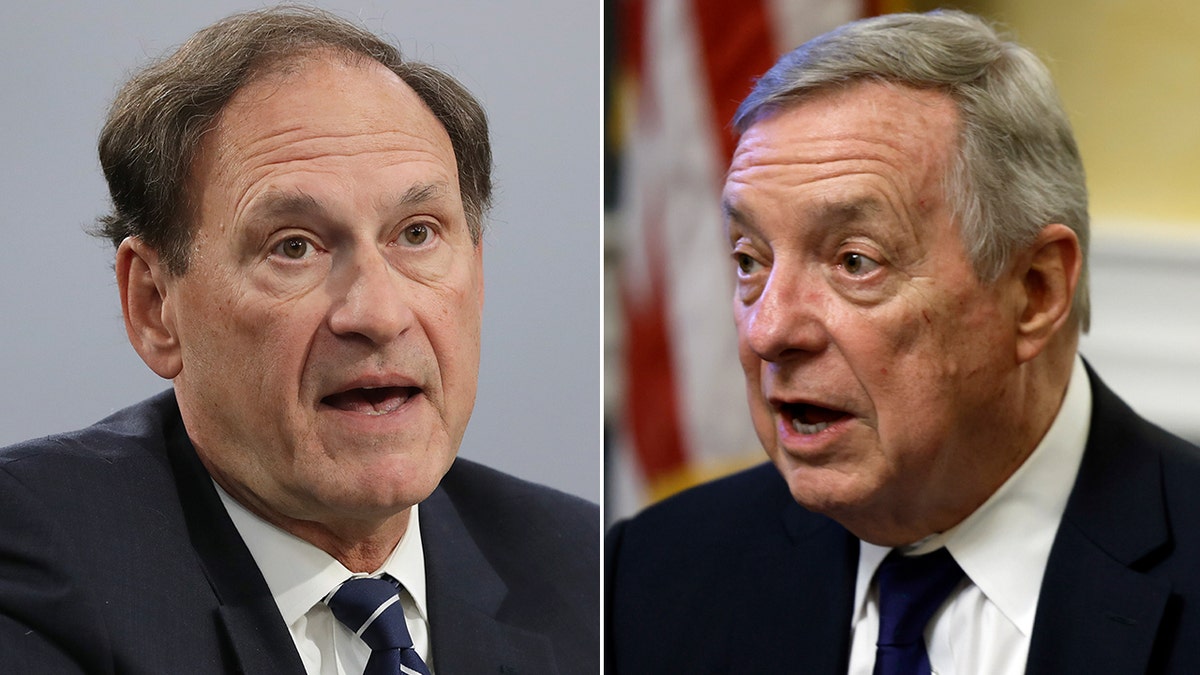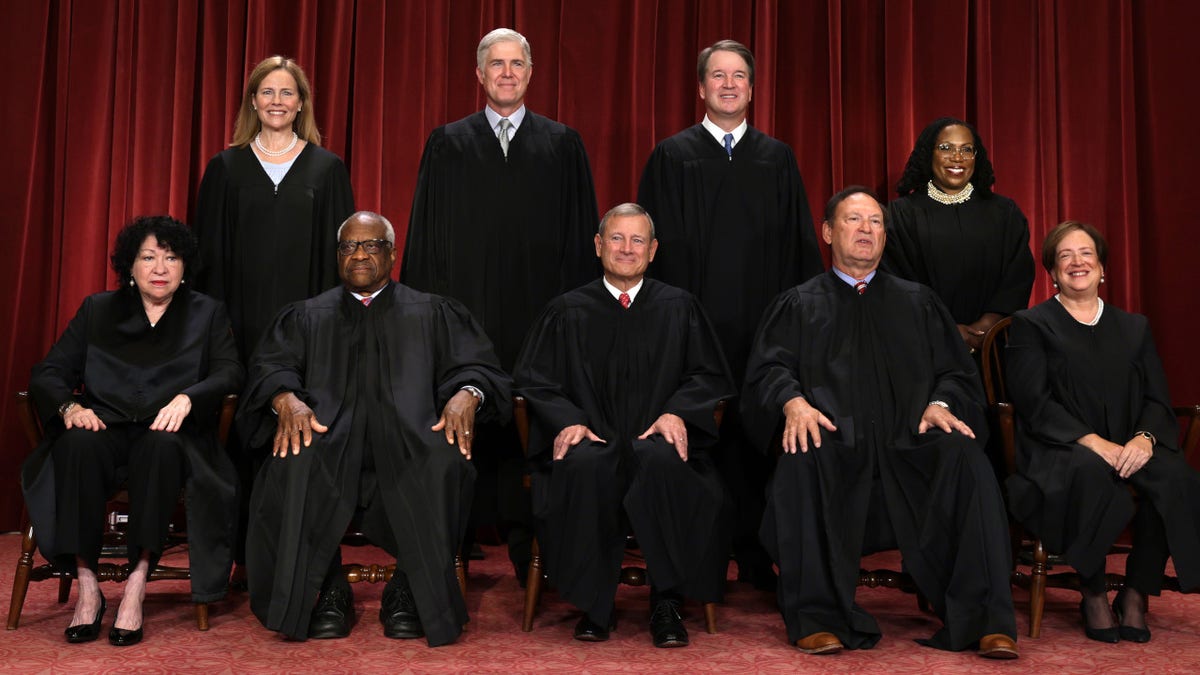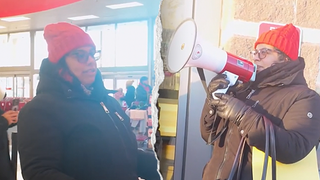Why Supreme Court ethics legislation is problematic: Carrie Severino
Judicial Crisis Network's Carrie Severino weighs in on the debate over Supreme Court oversight on 'Sunday Night In America.'
Justice Samuel Alito on Friday flatly rejected demands from Senate Democrats that he recuse himself from an upcoming Supreme Court case, calling their argument invalid.
In an August 3 letter, Democrats led by Sen. Dick Durbin, D-Ill., urged Chief Justice John Roberts to "take appropriate steps" to ensure that Alito recuse himself from Moore v. United States. The demand was made because Alito had sat down for a Wall Street Journal interview with opinion journalist David B. Rivkin, a practicing attorney who is a lawyer in the case.
"This argument is unsound," Alito wrote in an unusual statement added to a list of Supreme Court orders. "There is no valid reason for my recusal in this case."
Democrats on the Senate Judiciary Committee have been highly critical of Alito and the rest of the court for failing to adopt an ethics code, following reports of undisclosed paid trips taken by Justice Clarence Thomas and, on one occasion, by Alito. The committee approved an ethics code for the court on a party-line vote, though it is unlikely to become law.
DEMOCRATIC SENATOR FILES ETHICS COMPLAINT AGAINST SUPREME COURT JUSTICE SAMUEL ALITO

Associate Justice Samuel Alito joins other members of the Supreme Court as they pose for a new group portrait, October 7, 2022, at the Supreme Court building in Washington. Alito on Friday, September 8, 2023, rejected demands from Senate Democrats that he step aside from an upcoming Supreme Court case because of his interactions with one of the lawyers, in a fresh demonstration of tensions over ethical issues. (AP Photo/J. Scott Applewhite, File)
In the August letter, Judiciary Committee Democrats called for Alito to be recused from a tax case that will be heard this fall.
Lawmakers complained that Alito himself had cast doubt on his ability to judge the case fairly because he had sat for four hours of Wall Street Journal opinion page interviews with an editor at the newspaper and David Rivkin, one of the lawyers for the couple suing over a tax bill. Rivkin also represents Leonard Leo, the onetime leader of the conservative legal group The Federalist Society, in his dealings with the Senate Democrats, who want details of Leo’s involvement with the justices. Leo helped to arrange a private trip that Alito took to Alaska in 2008.
In one of the two articles produced from the interview, Alito said that Congress has no "authority" to regulate the Supreme Court.
"I know this is a controversial view, but I’m willing to say it. No provision in the Constitution gives them the authority to regulate the Supreme Court—period," Alito said.
SUPREME COURT JUSTICE KAVANAUGH IS HOPEFUL FOR ‘CONCRETE STEPS’ TO ADDRESS ETHICS COMPLAINTS

Supreme Court Justice Samuel Alito and Senator Richard "Dick" Durbin (D-IL) (Getty Images)
In a statement, Durbin accused Alito of eroding public trust in the Supreme Court.
"Justice Alito, of the originalist school of thinking that empty seats on an airplane don’t count as gifts, surprises no one by sitting on a case involving a lawyer who honored him with a puff piece in the Wall Street Journal. Why do these Justices continue to take a wrecking ball to the reputation of the highest court in the land?" Durbin said.
"The Court is in a crisis of its own making, and Justice Alito and the rest of the Court should be doing everything in their power to regain public trust, not the opposite. This episode is further proof that Chief Justice Robert’s failure to act remains untenable, and Congress needs to pass the SCERT Act to create an enforceable code of conduct. Supreme Court Justices should be held to the highest ethical standards, not the lowest," he added.
Alito, in his written response to Durbin's request, had said that the Democrats' theory "fundamentally misunderstands the circumstances under which Supreme Court Justices must work."
CLARENCE THOMAS RELEASES FIRST FINANCIAL DISCLOSURE SINCE FACING BARRAGE OF ETHICS ATTACKS

United States Supreme Court (front row L-R) Associate Justice Sonia Sotomayor, Associate Justice Clarence Thomas, Chief Justice of the United States John Roberts, Associate Justice Samuel Alito, and Associate Justice Elena Kagan, (back row L-R) Associate Justice Amy Coney Barrett, Associate Justice Neil Gorsuch, Associate Justice Brett Kavanaugh and Associate Justice Ketanji Brown Jackson pose for their official portrait at the East Conference Room of the Supreme Court building on October 7, 2022, in Washington, D.C. (Alex Wong/Getty Images)
"We have no control over the attorneys whom parties select to represent them, and as a result, we are often presented with cases in which one of the attorneys has spoken favorably or unfavorably about our work or character. Similarly, we regularly receive briefs filed by or on behalf of Members of Congress who have either supported or opposed our confirmations, or who have made either favorable or unfavorable comments about us or our work," Alito wrote.
He continued: "We participate in cases in which one or more of the attorneys is a former law clerk, a former colleague, or an individual with whom we have long been acquainted. If we recused in such cases, we would regularly have less than a full bench, and the Court's work would be substantially disrupted and distorted."
CLICK HERE TO GET THE FOX NEWS APP
"In all the instance mentioned above, we are required to put favorable or unfavorable comments and any personal connections with an attorney out of our minds and judge the case based solely on the law and facts. And that is what we do," he concluded.
"For these reasons, there is no sound reason for my recusal in this case, and in accordance with the duty to sit, I decline to recuse."
The Associated Press contributed to this report.













































